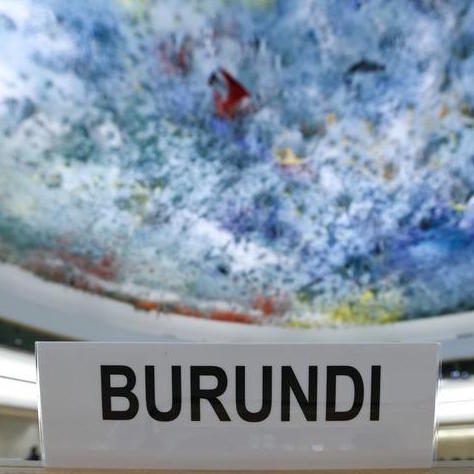Ten years after the unresolved 2015 crisis, and with no improvement in Burundi’s human rights record, the UN Human Rights Council has extended the mandate of the Special Rapporteur on the country. The resolution adopted today ensures continued international scrutiny of Burundi – an important step as the country has entered a long electoral period marked by risk factors of atrocity crimes.
“The Special Rapporteur is the only channel through which the international community receives updates on Burundi’s human rights situation,” said Hassan Shire, Executive Director, DefendDefenders. “Without this vital mechanism, the UN would be unable to monitor and respond to developments, including human rights abuses and their impact on Burundi’s stability and that of the wider Great Lakes region.”
Resolution A/HRC/60/L.13 condemns violations committed in Burundi, including extrajudicial killings, enforced disappearances, arbitrary arrests, torture, and sexual and gender-based violence. It condemns the widespread impunity perpetrators enjoy, deplores the reduced civic and democratic space, and stresses the need to create a safe environment for civil society, human rights defenders, journalists, and other independent actors. Echoing concerns raised by civil society, in August 2025, and UN human rights experts, in September 2025, the resolution expresses concern about the conditions in which recent parliamentary and local elections were held – including a closure of the civic and media space, lack of political pluralism, and a climate of fear.
The adoption of resolution L.13 follows sustained advocacy by Burundian, regional and international civil society. Most of Burundi’s human rights movement has been forced into exile but continues to monitor and report on the situation while supporting rights defenders and others at risk. In a joint letter released mid-August 2025, civil society both assessed the international community’s response to the Burundian crisis to date and urged a preventative approach based on risk factors of further violations and atrocity crimes.
In a regional context marked by instability, which is exacerbated by armed conflict in the eastern Democratic Republic of the Congo (DRC), Burundi held legislative, communal, and Senate elections in 2025 and is due to hold a presidential election in May 2027. Previous election cycles have been marred by violence.
The UN’s top human rights body, the Human Rights Council, first addressed the crisis triggered by then-President Nkurunziza’s bid for an unconstitutional third term through an October 2015 resolution, before holding a special session on Burundi and establishing a Commission of Inquiry (COI) to document violations and identify perpetrators (2016). In 2021, it created a Special Rapporteur mandate to follow up on the COI’s work.
During its 60th regular session (8 September-8 October 2025), it is expected to adopt nearly 40 resolutions, addressing both thematic issues, such as the death penalty and racism, and country situations – including, in addition to Burundi: Afghanistan, the DRC, Somalia, Sudan, and Russia.
The Council will hear an oral update from the Special Rapporteur on Burundi at its 62nd session (June 2026) and consider his next written report at its 63rd session (September 2026).

